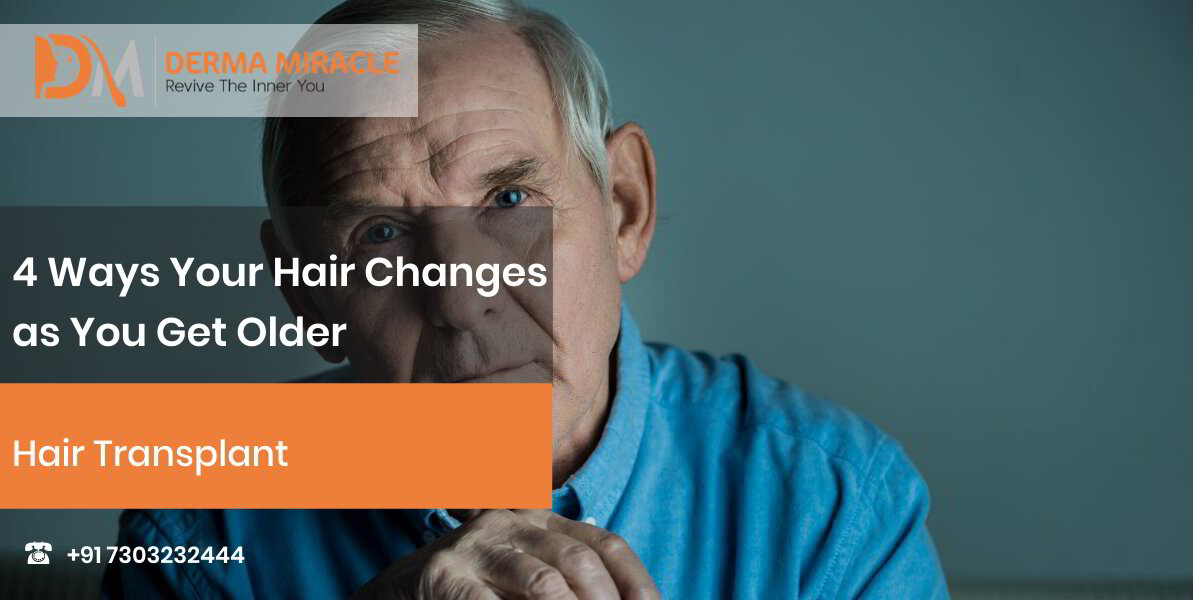Not only this, a person will observe multiple changes in his/her hair including texture, color, and thickness. All of the issues are mentioned below:

Table Of Content
Greying
Melanin is a pigment found in millions of hair follicles on your skin and hair greying is a natural part of aging. Less pigment is generated and transmitted into the outer shell of your hair when there are fewer melanocyte cells present, which results in the changing of the hair color. The main component that gives darker color to your hair is melanin and if its production is reduced, the darker shade of your hair fades away.

Thinning Hair
Stem cells in our hair follicles influence the hair root. The diameter and thickness decrease as the population of stem cells lessens. As this pace of hair thinning continues, it results in baldness in both men and women because the hair strand becomes so weak that they start falling off. Your scalp will become more visible day by day because, at this stage of life, new hair won’t come and replace the old ones that fell out.

Shine
Becoming older results in fat loss from various places of our body. And the lipids found in our hair follicles give shine to our hair. Another factor that gives our hair a glossy touch are the oils released from our scalp, as we age, the scalp becomes unable to produce the natural oils hence causing a dull and rough look of hair.

Brittle
There is a bond present between every hair to increase its strength or make it stronger, all these bonds become fewer and weaker between our hair strands as we grow older. Protein deficiency that we face in older age, gives rise to lower elasticity, and due to low elasticity, the hair is more readily damaged, which leads to breaking. If you look at the hair of your grandparents, they will appear to be frizzy, lacking strength and if you touch them, you will feel a rough/ coarse texture.

How to help your aging hair?
We can’t reverse all these effects of aging but we can change and adjust our routine to manage our hair. Switching to the best hair care products that prevent our hair from becoming weaker or brittle is all we need to save our hair from falling. First and foremost, the thing is to stop using all the chemical-containing products, using the hair loss prevention oils to nourish your scalp. It will help to retain the chemical linkage of your hair. Heat styling tools such as hair straighteners. Curling irons or rollers, blow dryers should be avoided.

Conclusion
All the suggestions are given in the above paragraph only include the precautions you should take to rescue your hair by avoiding or switching the products, but the essential part to maintain hair health is the change of your diet. You should start eating foods high in iron, vitamin E, vitamin C, omega-3 fatty acids, and vitamin B12. For aging individuals, these nutrients help to prevent hair loss and support healthy hair. Getting a haircut occasionally will also boost hair growth. Most importantly, releasing mental stress is the best technique to prevent hair loss, this could be done by performing yoga exercises daily or a few times a week.

CONSULT DEMAMIRACLE
4 Ways Your Hair Changes as You Get Older
ACT BEFORE IT’S TOO LATE

FREE CONSULTATION AVAILABLE
Contact Us
